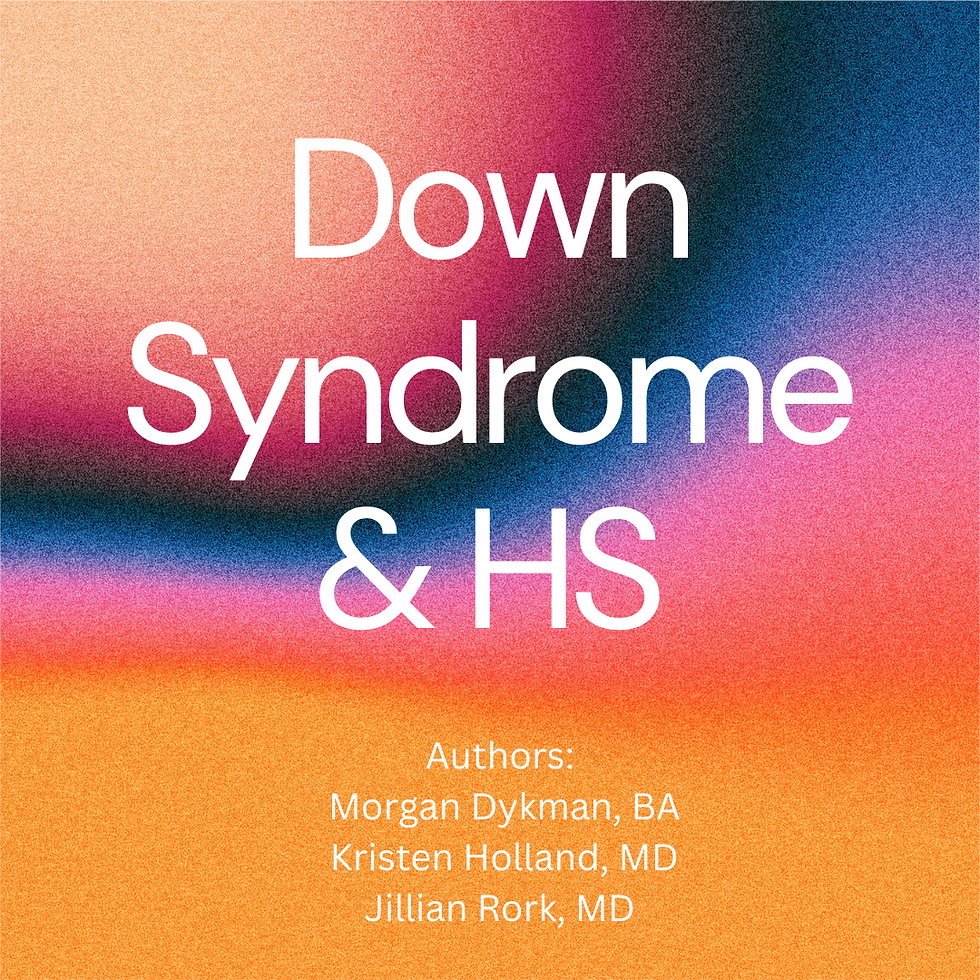Journaling with Hidradenitis Suppurativa
- Denise Fixsen

- Feb 20, 2021
- 3 min read
Updated: Nov 24, 2021
Journaling with a condition like HS is beneficial for several reasons, which we’ll explore below. You don't need anything fancy, just a regular notebook is sufficient.

Mentally, Emotionally & Spiritually
Journaling can help on a therapeutic level, especially if you're dealing with depression. Write down all your thoughts and feelings. Getting all of these feelings out of your head and onto paper can help release stress and unwanted negative or sad feelings.
Do this daily if necessary. If you're having a good day, make sure that you capture that moment in your journal as well; capturing the good days is very important. If you’re having a long spell of bad days, it really helps to go back and look at some positive days. It may also help to journal how you were able to overcome the bad days.
If you’re having a hard time finding good days, practice, practice, practice! Try to find one good thing everyday that you are grateful for and write it down; even if it's just one little thing that made you smile.
Physically
You want to be able to document everything physical when it comes to HS when you have a flare (or for stage 3 if you have a particularly bad flare or very large abscesses). Note how are you feeling with your HS:
Are you feeling unwell?
Did you have a low-grade fever?
Are you nauseous?
What are your abscess or abscesses like? Small, medium, large?
How long did they take to drain?
What did you do to help them drain?
Did any of them become infected?
Was there a lot of inflammation?
You should be journaling what goes on with a flare(s). This could help you to determine if an abscess becomes infected in the future. You will also get used to what type of symptoms you have with this disease, if any, so if later in time if you start developing symptoms with flares, which is unusual for you, it could be a good indication that you may want to see your doctor. Journaling will help you readily identify the symptom(s) which occur for you as a result of your HS.
In the beginning stages of your HS get in the habit of using a soft felt tip marker and drawing a circle around your abscesses should you see a lot of redness and inflammation and journaling all of this information. This will help you learn and identify cellulitis and eventually you will be able to learn and eyeball each individual abscess for cellulitis. Keeping a journal also helps if you ever have to go to the ER or when working with your doctor/dermatologist as you have a full list of the way your disease behaves.
Triggers
Keeping a journal is extremely helpful when trying to find your trigger(s), which could be a certain type of soap, stress, hormones, friction, food, etc. Once you get in the habit of keeping a daily journal, it will become second nature and will help you identify your trigger(s). This takes time, so patience is required.
Photos
Alongside journaling, take pictures of your active flares; you will need these, especially when you have an appointment for your HS. Those of you with Stage 1 and 2 may be experiencing a low or no flares when it’s time for your appointment, you will have photos of your prior active flares to share with the dermatologist. Some have also needed them for disability reasons.
Content in this article is not intended to be a substitute for professional medical advice, diagnosis, or treatment. Always seek the advice of your physician or other qualified health provider with any questions you may have regarding a medical condition. Never disregard professional medical advice or delay seeking treatment because of something you have read on this website.
Written by Denise Panter-Fixsen
Edited by Brindley Kons



